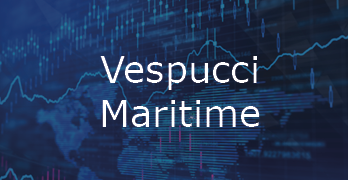FBX Index April 2024: No Red Sea solution in sight

The Red Sea crisis continued unabated during March with the frequency and intensity of attacks at a high level for almost the entire month, although attacks from the Houthies did seem to enter a pause towards the end of March. It also became a month where a container ship operating in SeaLead Shipping’s network was attacked, fortunately with no major damage or any injuries to crew. The attack appears to have happened on the basis of the Houthies using outdated information to mistakenly peg the vessel as being US-affiliated.
This is not the first time it appears that a vessel has been attacked on the basis of an erroneous designation of nationality. A different attack in March illustrated the complexities further. News reports from Bloomberg citing unnamed sources indicated that China and Russia had struck a deal with the Houthies to allow safe passage through the area in return of political support. The next day the Houthies attacked a Chinese-owned vessel carrying Russian oil, again seemingly on the basis of outdated information relating to the ownership of the vessel. No further information as to an agreement for safe passage has been seen. COSCO and OOCL continue to divert around Africa whereas smaller Chinese niche carriers continue to operate through the area as they have been doing throughout the period.
Spot rates continued to decline on the major trades linking Asia to Europe and North America, and in Asia to Europe the carriers have now relinquished more than half of the increases they had otherwise gained in the early part of the crisis. The pace of rate declines is slowing down, for now indicating a possible flattening out over the next month at a level still considerably above the pre-crisis level, as well as above the pre-pandemic level. However, the declining spot rates is putting pressure on carriers in contract negotiations.
Spot rates continued to decline on the major trades linking Asia to Europe and North America, and in Asia to Europe the carriers have now relinquished more than half of the increases they had otherwise gained in the early part of the crisis. The pace of rate declines is slowing down, for now indicating a possible flattening out over the next month at a level still considerably above the pre-crisis level, as well as above the pre-pandemic level. However, the declining spot rates is putting pressure on carriers in contract negotiations.
Schedule reliability clearly suffered as vessels were forced to redirect around Africa, creating ripple effects into services in other trades. Data from Sea-Intelligence shows that global schedule reliability declined 10.3% from November to January. In February there was an improvement of 1.8%. The expectation should be further improvements in the coming months as vessels are now settled into the new round-Africa services where planned transit times are longer, but it should allow for more timely services in accordance with these new schedules.
The remaining members of the THE Alliance announced their new Pacific network for 2025 when Hapag-Lloyd leaves the alliance, and Ocean Alliance came out with their new network for 2024. When these are seen together with Maersk and Hapag-Lloyd’s new network in Gemini Coorporation for 2025 there is an element that is worth noting. Many port calls in Hong Kong are being dropped from all the networks. Gemini has no direct calls in Hong Kong, THE Alliance removes all Pacific services calls in Hong Kong except for one to the US East Coast and Ocean Alliance reduces the number of services with a direct call from 11 to 6. This creates a major problem for the port going forward.
Finally, a small comment on the bridge disaster in Baltimore. For Baltimore this is a major disaster and significant disruption to supply chain flows – and of course a tragedy for the bridge workers who lost their lives. From a US perspective this only has impact in the northeast as cargo flows is mainly redirected through Norfolk and New York/New Jersey. This leads to a 10% increase in port handling in these two ports, which is within their capacity. As a result, some delays and cost increases might be expected, but nothing disruptive on the ocean side. Inland truck and rail might see slightly more challenges in the northeast of the United States but from a global perspective this will have no impact at all.
About Lars Jensen, CEO, Vespucci Maritime
Lars is a leading expert and thought leader in analyzing global container shipping markets. Lars has 20 years’ experience hereof the last nine within multiple companies he has founded, with the main focus as CEO of Vespucci Maritime.
Receive monthly container market reports direct to your inbox.